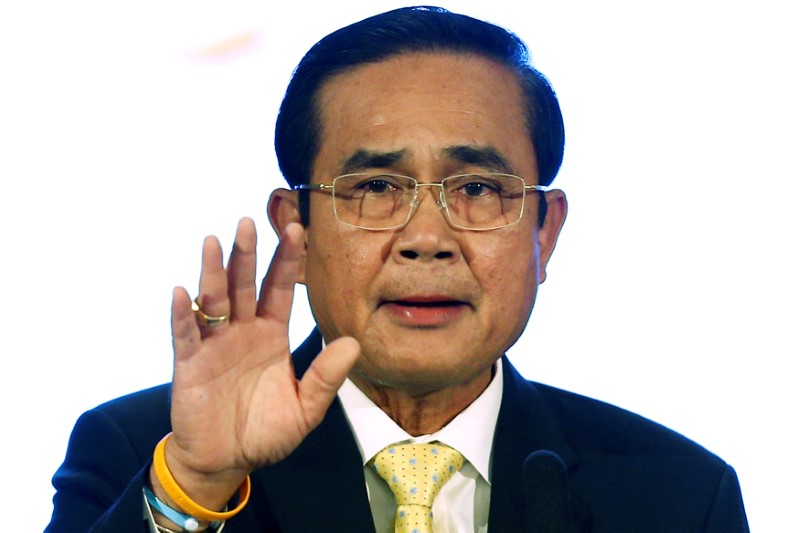By Cod Satrusayang
BANGKOK (Reuters) - Pro-establishment lawmakers in Thailand said they plan to ensure junta chief Prayuth Chan-ocha stays on as prime minister by fielding a proxy political party backed by the military in a general election planned for next year.
Thailand voted overwhelmingly in August to accept a junta-backed constitution, paving the way for an election - but one that will require future elected governments to rule on the military's terms.
Paiboon Nititawan, a former senator appointed by the military to its reform council and its constitution drafting committee, said he would set up a party to nominate Prayuth as the next prime minister.
"We have retired generals and soldiers that are interested in joining our party," Paiboon told Reuters. "We need a good person to ensure the reforms put in place by the junta get carried out. For me, that person is General Prayuth."
Thailand has seen 19 coups or attempted coups since the end of absolute monarchy in 1932 and the role of the military in politics is always closely watched.
Politicians from main political parties said the military had been lobbying people to join Paiboon's party.
For its part, the junta says it does not support the formation of a political party and it is not interested in staying in power beyond 2017. Prayuth has said that all options must be exhausted before he would accept any nomination to become prime minister again.
Suranand Vejjajiva, a former minister in the Yingluck Shinawatra government that was overthrown in May 2014, said a party that supports Prayuth as premier could gain enough seats to ensure military rule.
"There is something within the Thai political culture that longs for a figure of authority who comes in and solves our problems," he told Reuters.
Kasit Piromya, a former foreign minister and member of the pro-establishment Democrat Party, said the military was reaching out to more conservative members of his party to form a coalition with Paiboon's party.
Under the new constitution, a 250-member upper house Senate will be appointed by the military and six seats will be reserved for the heads of the armed forces and police.
The military will need at least 125 lawmakers from the elected lower house to join the appointed senators in voting for a non-elected prime minister.

The constitution will allow the military to retain extensive powers during a transition period following the general election and, following an eventual royal succession that has prompted worries about instability.